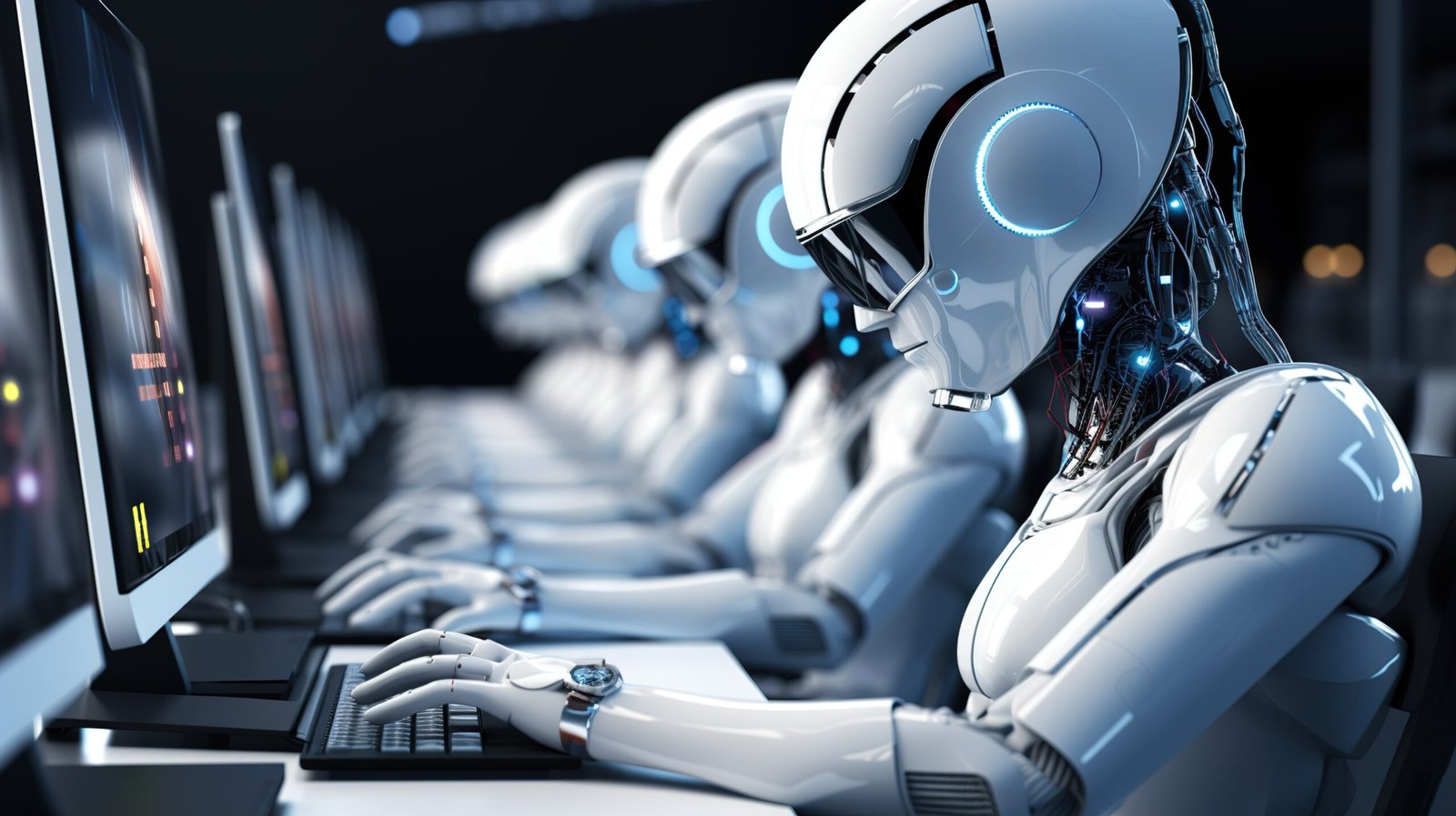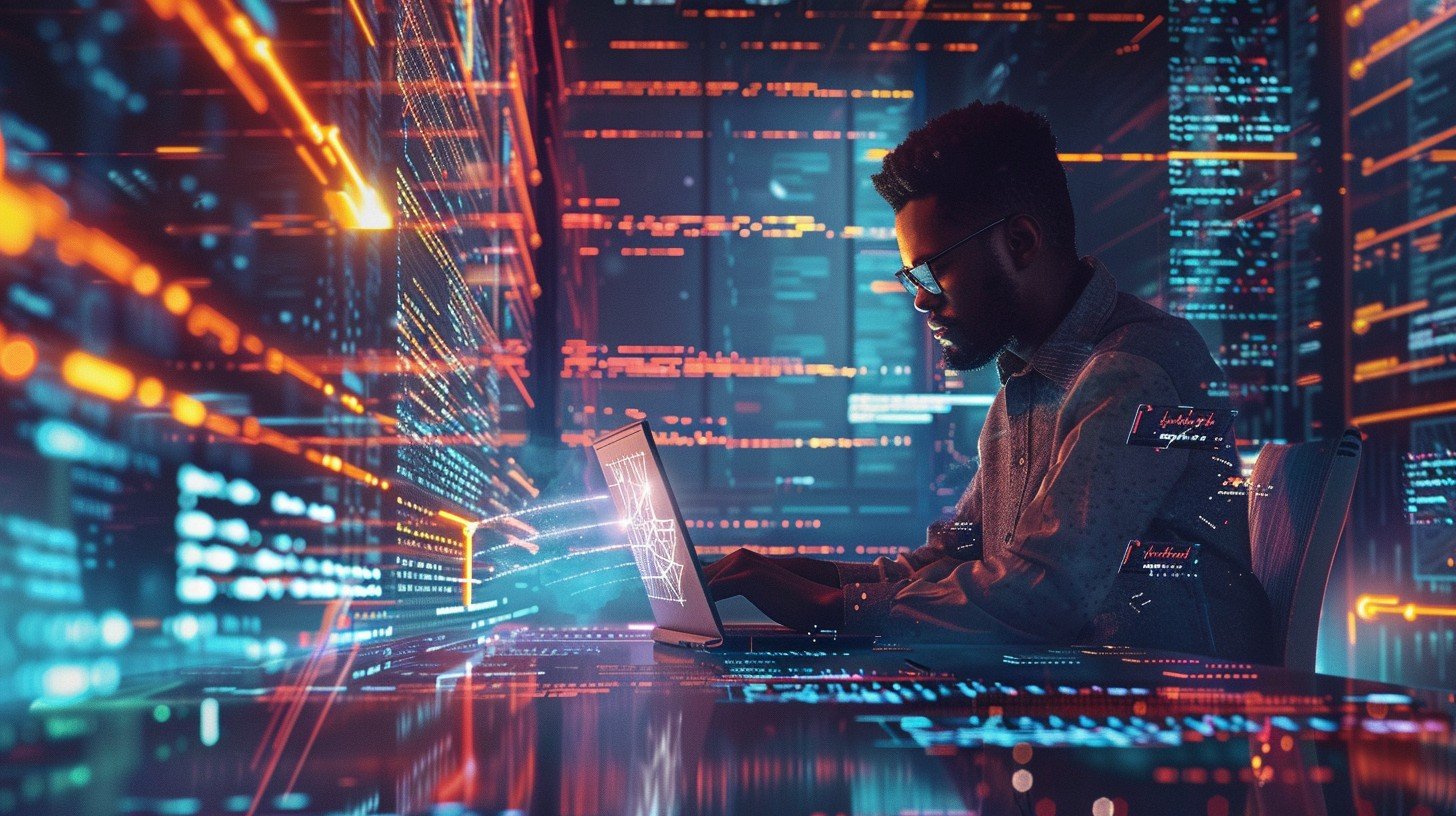Can AI Replace Software Engineers?
Introduction
In the ever-evolving world of technology, one question that frequently comes up is: Can AI replace software engineers? With the rapid advancements in artificial intelligence, it’s a topic that sparks debate across industries. In this article, we will explore this intriguing question, diving into the capabilities of AI, the role of software engineers, and what the future might hold for both.
Understanding Artificial Intelligence

Artificial Intelligence, or AI, refers to machines designed to mimic human thinking and decision-making processes. These systems are designed to think, learn, and adapt, mimicking cognitive functions such as problem-solving, pattern recognition, and decision-making. There are three main types of AI:
- Narrow AI: This type is specialized in a single task. It’s the most common form of AI today, used in applications like virtual assistants (e.g., Siri, Alexa) and recommendation algorithms (e.g., Netflix, Amazon).
- General AI: This is a more advanced form of AI that can understand and learn any intellectual task that a human can. It is still theoretical and not yet achieved.
- Super Intelligent AI: This refers to AI that surpasses human intelligence and capabilities. It remains a concept and raises questions about control and ethical boundaries.
The Role of Software Engineers

Software engineers are the designers who build and shape the digital landscape. They design, develop, and maintain software applications, ensuring they function efficiently and effectively. Key responsibilities include:
- Coding and Programming: Writing code in various programming languages like Python, Java, or C++.
- Problem-solving: Analyzing and resolving complex software issues.
- Collaboration: Working with teams to develop innovative software solutions.
- Testing and Debugging: Identifying and fixing errors in the software.
The role requires a deep understanding of computer science principles, programming skills, and a knack for creative problem-solving.
AI in Software Development
AI has already begun to make its mark on software development. It assists engineers by automating mundane tasks, optimizing code, and enhancing productivity. Some popular AI tools include:
- GitHub Copilot: An AI-powered code completion tool that suggests lines of code as developers work.
- DeepCode: An AI code review tool that detects bugs and vulnerabilities in real-time.
- TabNine: A machine learning-powered autocomplete tool that integrates with various code editors.
These tools demonstrate how AI can streamline workflows and reduce the cognitive load on developers, leading some to question whether AI replace software engineers entirely.
Advantages of AI in Software Engineering

AI offers several benefits that can transform software engineering:
- Increased Efficiency: AI can handle repetitive tasks, allowing engineers to focus on more complex aspects of development.
- Reduction of Repetitive Tasks: Automated testing and debugging help save time and reduce human error.
- Error Detection and Debugging: AI can quickly identify and fix errors, enhancing the overall quality of the software.
These advantages make AI a valuable ally in the software development process, but do they mean AI replace software engineers?
Limitations of AI in Software Engineering
Despite its strengths, AI has limitations that prevent it from fully replacing software engineers:
- Creativity and Problem-solving: AI lacks the ability to think creatively or solve problems in novel ways. Human intuition and ingenuity are still unmatched.
- Understanding Human Needs and Emotions: AI cannot comprehend human emotions, making it challenging to design user-centric software.
- Ethical Considerations: AI decisions can lead to biased outcomes, raising ethical concerns that require human oversight.
These limitations highlight why AI may not be able to replace software engineers entirely. The human element remains crucial.
Case Studies: AI vs. Human Engineers

Examining real-world scenarios can help us understand the dynamic between AI and human engineers:
- AI Success Stories: In areas like data analysis and predictive modeling, AI has proven to be highly effective, offering insights that drive business decisions.
- Human Excellence: In creative fields such as game design or user experience, human engineers outperform AI due to their understanding of aesthetics and user preferences.
These examples demonstrate that while AI excels in certain areas, humans remain indispensable in others, suggesting that AI cannot fully replace software engineers.
Can AI Fully Replace Software Engineers?
The question of whether AI can fully replace software engineers is complex. While AI can automate certain tasks, it cannot replicate the human touch required for creative and strategic decisions. Current AI capabilities are limited to specific tasks, and the need for human judgment remains crucial in many aspects of software engineering.
The Future of AI and Software Engineering

Looking ahead, AI will likely continue to evolve, influencing software engineering in new ways:
- Predictions for the Next Decade: AI is expected to become more integrated into development processes, leading to smarter tools and more efficient workflows.
- Potential New Roles for Software Engineers: As AI takes on more routine tasks, engineers may focus on higher-level strategy, innovation, and ethical considerations.
The future will see a symbiotic relationship between AI and human engineers, each complementing the other’s strengths, rather than AI entirely replacing software engineers.
Ethical and Societal Implications
The rise of AI in software engineering brings ethical and societal challenges:
- Job Displacement Concerns: As AI automates tasks, there are fears of job losses. However, new roles and opportunities may emerge as technology evolves.
- The Need for Ethical Guidelines: Establishing clear ethical guidelines is essential to ensure AI is used responsibly and without bias.
Addressing these issues is crucial to harnessing the full potential of AI without the fear that AI replace software engineers.
Balancing AI and Human Expertise
Rather than viewing AI as a threat, it’s beneficial to see it as a tool that complements human expertise:
- How AI Can Complement Human Work: AI can handle data-heavy tasks, allowing engineers to focus on creative and strategic aspects.
- The Importance of Collaboration: A collaborative approach ensures that AI and humans work together harmoniously, leveraging each other’s strengths.
By balancing AI with human expertise, we can achieve remarkable advancements in software engineering without AI having to replace software engineers.
Education and Skill Development
Preparing future software engineers involves equipping them with the skills needed to thrive in an AI-driven world:
- Preparing Future Software Engineers: Educational programs should focus on critical thinking, creativity, and ethical considerations alongside technical skills.
- The Role of AI in Education: AI-powered tools can personalize learning experiences, helping students master complex topics more efficiently.
Investing in education and skill development is vital to ensure AI does not replace software engineers, but rather enhances their abilities.
Industry Insights
What do industry leaders think about the future of AI and software engineering? Here’s what they say:
- Opinions from Tech Leaders: Many experts believe AI will augment, not replace, software engineers, emphasizing the need for continuous learning.
- Trends in AI and Software Engineering: The trend is toward increased integration of AI into development processes, enhancing efficiency and innovation.
These insights offer valuable perspectives on the evolving landscape of technology and suggest that AI will not replace software engineers entirely.
Read more: Flux AI Image Generator: Possible To Beats Midjourney
Conclusion
Can A while AI has made significant strides in software engineering, it cannot fully replace human engineers. The unique combination of creativity, problem-solving, and emotional intelligence that humans bring to the table remains irreplaceable. The future lies in collaboration between AI and humans, creating a powerful synergy that drives innovation and progress in the tech world without AI needing to replace software engineers.
FAQ’s
1. Can AI write code by itself?
Yes, AI can generate code using machine learning models trained on vast datasets. However, the code often requires human oversight and refinement to ensure quality and functionality.
2. What tasks can AI automate in software engineering?
AI can automate repetitive tasks such as code completion, testing, debugging, and data analysis, freeing up engineers to focus on more complex problems.
3. How can software engineers stay relevant?
Software engineers can stay relevant by continuously learning new technologies, embracing AI tools, and focusing on creative and strategic aspects of development.
4. What are the ethical considerations of AI in engineering?
Ethical considerations include ensuring AI systems are unbiased, transparent, and used responsibly. Engineers must prioritize ethical guidelines and human oversight in AI development.
5. Will AI lead to job losses in the tech industry?
While AI may automate certain tasks, it can also create new opportunities and roles, especially in areas requiring human creativity, problem-solving, and ethical decision-making.
